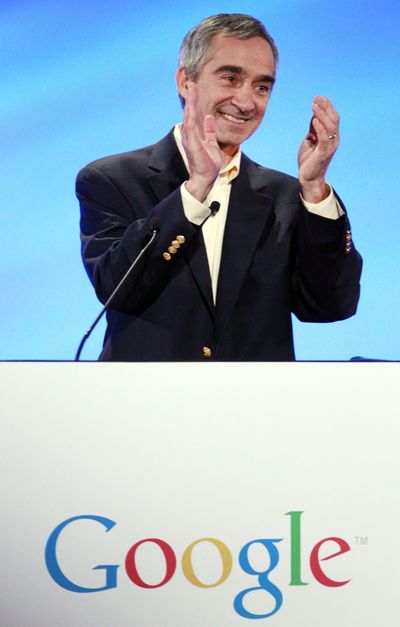Google network headed to Kansas
Hundreds of cities vied for ultra-fast connection

KANSAS CITY, Kan. – After seeing Facebook pleas and flash mobs, and even cities temporarily renaming themselves “Google,” the search engine giant said Wednesday it has chosen Kansas City, Kan., as the first place that will get its new ultra-fast broadband network.
Google announced that the city would be the inaugural site for its “Fiber for Communities” program, which it says will be capable of delivering Internet access more than 100 times faster than the home broadband connections provided by phone and cable companies across the U.S.
The company envisions systems that will let consumers download a high-definition, full-length feature film in less than five minutes, allow rural health clinics to send 3-D medical images over the Internet and let students collaborate with classmates around the world while watching live 3-D video of a university lecture.
Google’s service, which will provide Internet connections of 1 gigabit per second to as many as 500,000 people, will be offered in early 2012 while the company looks at other communities across the country.
More than 1,100 cities had made bids to become a test site for the company’s fiber-optic network, trying to catch Google’s attention and show their enthusiasm.
Milo Medin, Google’s vice president for access services, said Kansas City, Kan., was selected in part because of its solid network infrastructure and because the program would have an impact on the community, one of the poorest in the state.
The company’s deadline for city governments and citizens to express interest in attracting Google passed in March 2010. Many cities used stunts and gimmickry to get the company’s attention and show interest in the experimental network.
Joe Reardon, mayor and CEO of Kansas City and Wyandotte County, said the “1 gigabit fiber backbone straight through to businesses and homes” would mean business and educational opportunities for the area and would help the community grow in unique ways.
Google’s new fiber-optic network comes amid growing worry among policy makers and public interest groups in Washington that broadband connections in the U.S. are far slower and more expensive than those available in many European and Asian countries, and that too many Americans still have no broadband access at all.